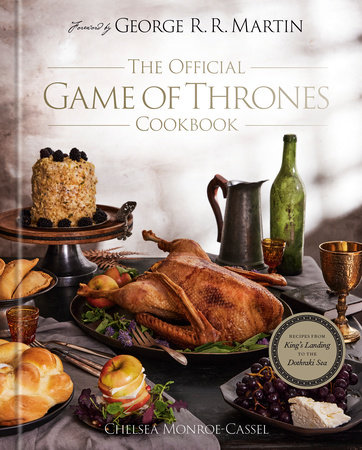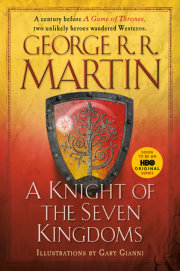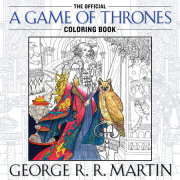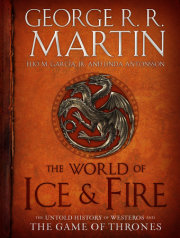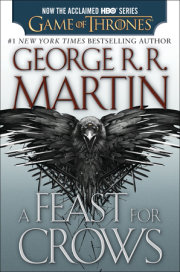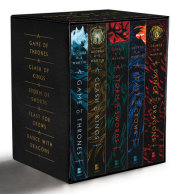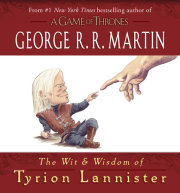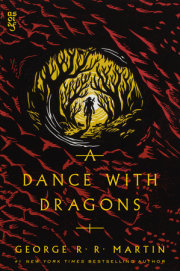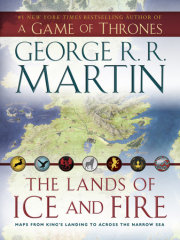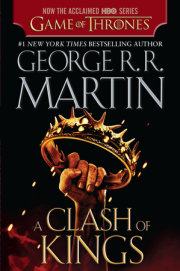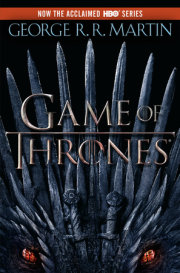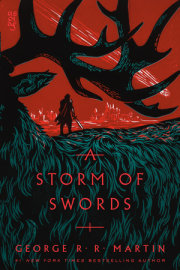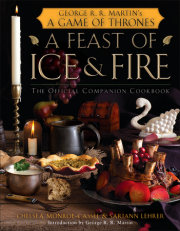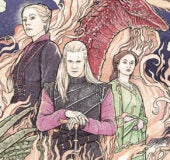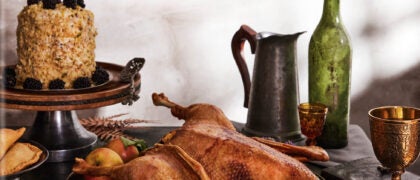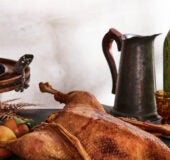Introduction
Every maester who spends his career not in service to some great lord but at the Citadel itself hopes for at least one of two accomplishments: to attain the rank of archmaester, surpassing all others in one of the twenty-one scholarly disciplines (represented by the wide array of metals that may appear in the links of a maester’s chain), or to leave for posterity some great work—a piece of scholarship that lifts the Crone’s Lantern and shines the light of knowledge on some previously unknown corner of the world, that those who come after may think on what we have learned and enter into dialogue with us even after our bones are dust and our names preserved only in the yellowed vellum of that celebrated manuscript.
For me, I know there will be no triple link, and no acolytes to call me “archmaester” in my dotage when my mind’s best years are spent. The wisdom of the older archmaesters is oft honored more for the paths it cut in youth rather than the roads it is likely to open in the twilight years, when the edge of reason is dulled with sleep and insight clouded with dreams.
I flatter myself in thinking that
were there a link for knowledge of meat and mead, my knowledge in that realm would long since have earned me the triple link and the honorific that I seem here to spurn with such bad grace, knowing it to be beyond my reach. No matter. Instead I leave behind me this manuscript, which I hope will one day be recognized as a useful inquiry into the foods of the Seven Kingdoms and beyond, and how those dishes reflect the places and the peoples who enjoy them.
I leave this missive as preface to what I regard as my life’s greatest work, that you—future reader known only to me by our shared passion for the subject of this text—might understand what it is you hold in your hands. It is more than a mere collection of recipes; it is a history of Westeros and those invisible ties that bind us much closer than any of us realize to our neighbors across the narrow sea. It is a story of who we are.
But first, I will say a few things about who I am.
I was born in a time of peace, the only son of Ben Beesbury, Lord of Honeyholt. My youth was spent on the shores of the Honeywine, where I fashioned my dreams from the legends of old and the songs of traveling singers. I knew in my heart that I would master skill with sword and shield, and one day distinguish myself on the field of battle, bringing glory to my House.
But late in the reign of King Aegon V, the harvests were bountiful and summers long, and there was little need for famed warriors. Eventually, with time came temperance, and I arrived at the realization that I was not suited for a warrior’s life. My accomplishments would be with a quill, not at the quintain, and words would be my weapons: I would be a knight of the mind.
I resolved to travel to the Citadel and forge a chain, despite the protestations of my father who had no other son to inherit lands and title, which instead passed to my cousin Warryn upon my father’s death. Yet when I arrived, hungry for knowledge but lacking in direction, still I sought to distinguish myself with some great work. At first, I considered a treatise on the keeping of bees—a hobby of my youth more or less compulsory for those of my household—but it did not take long to learn that several other maesters, one of them my own grandfather’s great uncle, had already written definitive works on the topic.
I took to wandering aimlessly through the shelves of the Citadel’s vast library, pulling books and scrolls at random—searching, I suppose, for some sort of direction. I still remember the moment when I made the discovery. The recipe fragment I found was of brittle parchment, the ink scarcely legible apart from the words at the top: Cake of Limone. Instantly, I recalled the lemon cakes of my youth: delicate pastries in which sweet honey and sour citrus vied for dominance. My senses ignited with the remembered taste and smell, and there I stood in the stacks, mouth watering. So I found at long last the interest that would bloom into a lifelong passion. To my knowledge, the study of the foods and drinks of Westeros has not yet been undertaken by any maester.
Shortly after this, Prince Rhaegar Targaryen came to the Citadel, seeking some scrap of lore in our archives. Like so many others, I was struck by his quiet intensity, his zeal for learning. And when he played his harp for us, I wept with the rest for the sheer beauty of it. This, I thought, was a future king worthy of whatever humble gifts I could offer. I threw myself into my research, compiling recipes with the intent of presenting my work as a coronation gift to Prince Rhaegar when he took up his father’s crown.
But the gods laugh at the plans of men, and everything changed when Prince Rhaegar was felled at the Trident. All the kingdom’s hope, and mine, was bound up in the beautiful prince who loved his books more than battle.
One thing was certain: no longer would a study of Targaryen cuisine be welcome at court. I confess that I became dispirited and set my work aside.
It was not until a colleague of mine in King’s Landing, knowing my interest in the subject, secretly obtained and sent a packet of recipes from the Red Keep’s kitchens, fearing their destruction in the upheaval surrounding Robert’s Rebellion. Some of these recipes appeared to have come to Westeros with the Targaryens, and might provide the sole surviving glimpse into the foods enjoyed by the dragonlords of Old Valyria. Despite myself, my curiosity was once again piqued.
With the Citadel’s vast archives at my disposal, I set to work again in earnest. This time, I sought out recipes that ought to be preserved as well as those that sparked my own personal interest. What could a food tell us about the people who ate it? What incredible dishes survived to our present day from ancient origins? Did any recipes survive the Doom of Valyria?
So I present to you, dear reader, the culmination of my life’s work. What began as a regal gift has grown in scope to a record of the very identity of these Seven Kingdoms and the fiery past that forged us. I may never possess the mask, ring, and rod of an archmaester, but at least here, in these pages, I hope to be regarded as that which I set out to be so long ago in my youth: a knight of the mind.
Yours in service,
Maesten Alton
Copyright © 2024 by Chelsea Monroe-Cassel; Foreword by George R. R. Martin. All rights reserved. No part of this excerpt may be reproduced or reprinted without permission in writing from the publisher.





